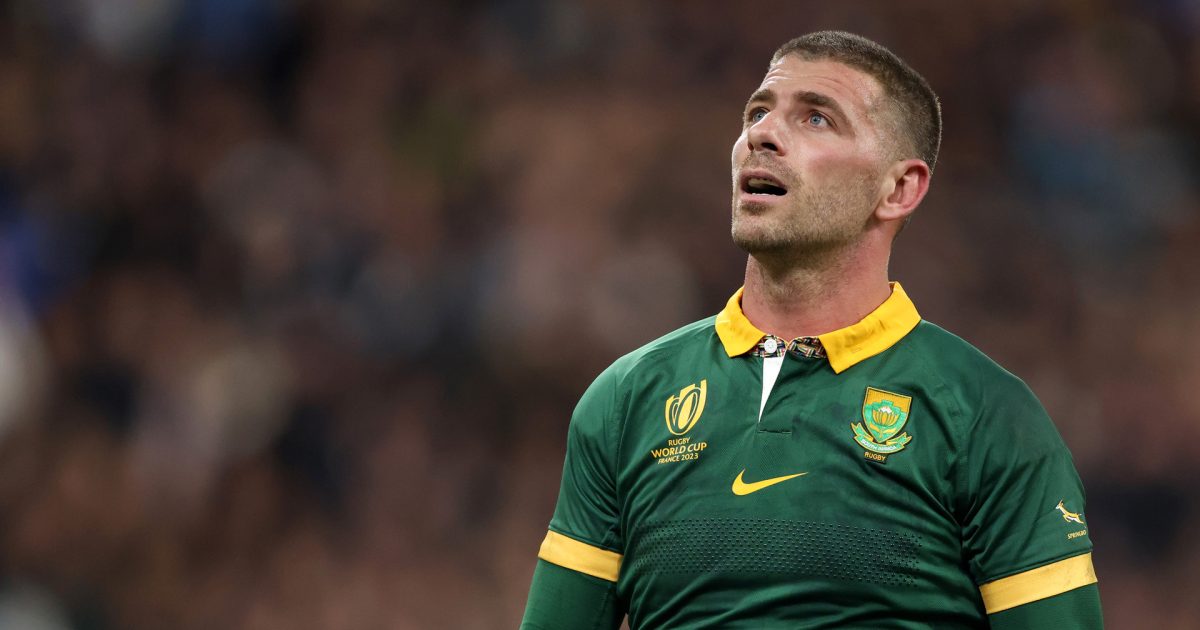The 'massive challenge' separating All Blacks and Springboks transitions

It’s a season of transition for the global rugby south, with all four Rugby Championship nations entering the annual competition with new coaching groups.
Michael Cheika has stepped away from Argentina, Ian Foster has been replaced in New Zealand, Eddie Jones was cast aside in Australia and Jacques Nienaber has moved on from South Africa.
While it’s the Kiwis looking to defend their TRC crown once more, it’s again the South Africans who enter the competition as reigning world champions.
It’s also the Springboks facing the biggest on-field transition. The core group who have brought the nation two World Cup wins since 2019 are too old to make another run in 2027, meaning the team must unearth a new generation of world-beaters during this World Cup cycle.
It’s something that was highlighted by Simon Strachan of Gainline Analytics, someone who studies and specialises in cohesion analytics.
“The interesting thing about South Africa, they’ve had this advantage of having this core group together for such a long period of time because they brought them together at the same time,” Strachan told the Aotearoa Rugby Pod.
“Now, they’re going to have this situation where they’re going to have to transition that group in a big chunk and that is a massive challenge for them. How they transition that group towards 2027.
“I think it’s been acknowledged, even Rassie acknowledged it, they aimed for 2023 and the 2019 World Cup was almost a bonus for them. They were absolutely competitive then but they won it.
“But how they transition into 2027 is really critical for them.”
Strachan dived into some more detail on the All Blacks transition under Scott Robertson, highlighting the importance of pacing out the transition period.
“It’s a case of let’s transition into what we want to do without making a massive amount of shift. Because, if you change the way you’re playing and you change the players, it’s going to be chaos. You don’t know necessarily what’s not working, and so I think there is a transition of the way they play, the All Blacks, and there’s going to be a transition of players at the moment.
“It’s going to be a bit scratchy and it has been a bit scratchy to start with, but you’re always going to expect that. It’s a case of understanding what you have and making decisions around that going forward. Part of that is at what time are you going to make that transition?”


































































Just a wee edit for the title: ‘Separating’ (only one ‘e’)
SA will transition in stages. Through the PONI program they have already begun their transition. They will need to develop 15-20 players in the next three years and put 20 to 40 caps on each of these players while phasing out the guys no longer relevant. I reckon they have already started that with bringing in several youngsters or fringe players in and giving them caps. Then through their structures and alignment camps they have identified a group to select from going forward. Transition will happen in phases and I reckon this year we will see just a handful of new faces which we already have. The largest change will come in 2026 where you will see all 15-20 new players lining up regularly picking up caps. Whether its enough to win in 2027 is anyones guess but I would say they will be in a similar position to France heading into last years world cup. I think the teams most likely to peak in 2027 will be the All Blacks, France and England as they are already building around a young core and will be the most experienced and cohesive groups going into 2027. Ofcourse SA will retain a core group of their golden generation but whether or not they win in 2027 will depend on how they transition.
Rassie will have a plan for transition, the talent coming through is very, very good.
Usually teams in their position hit some challenging periods the year before the World Cup as the players blooded over the previous season or two take more ownership.
The springboks will be fine I reckon.
SA must go through the same as the peerless 2008-2017 NZ team did. And although they have never reached the same heights as Rugby’s GOAT team. They will face the same fate.
The All Blacks GOAT team didn’t really start until the 2011 World Cup.
South Africa won the 2009 Tri Nations and Australia won the 2011 Tri Nations.